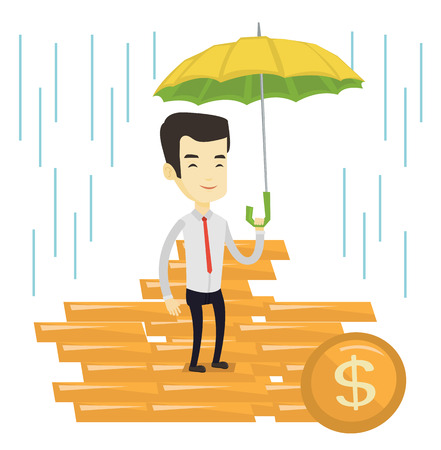1. Introduction to Commercial Auto Insurance
Commercial auto insurance is a type of policy designed specifically for vehicles used in the course of business operations. Unlike personal auto insurance, which covers vehicles owned and operated by individuals for private use, commercial auto insurance addresses the unique risks that come with using vehicles for work-related tasks. Whether you own a small delivery van, a fleet of trucks, or company cars for your sales team, having the right commercial auto coverage is essential to protect your business from financial losses resulting from accidents, theft, or other vehicle-related incidents.
Why Is Commercial Auto Insurance Important?
Businesses depend on vehicles to transport goods, deliver services, or carry employees. Accidents can happen at any time, and without proper coverage, your business could face hefty repair bills, medical expenses, or even lawsuits. Commercial auto insurance helps cover these potential costs so you can keep your business running smoothly.
How Does It Differ from Personal Auto Insurance?
| Personal Auto Insurance | Commercial Auto Insurance | |
|---|---|---|
| Who Needs It? | Individuals using their car for personal reasons | Businesses using vehicles for work purposes |
| Type of Vehicles Covered | Private cars, SUVs, personal pickup trucks | Company cars, vans, trucks, specialty vehicles |
| Coverage Limits | Typically lower limits | Higher limits to address greater risks |
| Typical Use | Commuting, family trips, errands | Deliveries, transporting goods or people, job site visits |
Main Features of Commercial Auto Insurance
- Covers damages to company-owned vehicles caused by accidents or other events like fire or theft
- Protects against liability claims if your driver causes injury or property damage to others while on the job
- Can include coverage for rented or leased vehicles used for business activities
- Makes it easier to manage insurance needs when you have multiple drivers and vehicles under one policy
Is Commercial Auto Insurance Required?
Most states in the U.S. require businesses that use vehicles for work to carry at least a minimum amount of commercial auto liability coverage. This requirement helps ensure that businesses are financially responsible if their vehicle is involved in an accident. However, many companies choose higher limits and additional options for better protection.
2. Liability Coverage Options
Understanding Bodily Injury and Property Damage Liability
When it comes to commercial auto insurance in the United States, liability coverage is one of the most important protections for businesses. This type of coverage helps protect your company if someone is injured or property is damaged in an accident involving your business vehicle. There are two main parts to liability coverage:
- Bodily Injury Liability: Covers medical expenses, lost wages, and legal fees if someone is hurt in an accident caused by your driver.
- Property Damage Liability: Pays for repairs or replacement if another person’s property (like their car, fence, or building) is damaged in an accident caused by your business vehicle.
State Requirements for Liability Coverage
Each state sets its own minimum requirements for commercial auto liability insurance. These rules are in place to make sure that if an accident happens, there’s enough coverage to pay for injuries and damages. Here’s a sample table showing minimum requirements in a few states:
| State | Bodily Injury per Person | Bodily Injury per Accident | Property Damage per Accident |
|---|---|---|---|
| California | $15,000 | $30,000 | $5,000 |
| Texas | $30,000 | $60,000 | $25,000 |
| New York | $25,000 | $50,000 | $10,000 |
Its important to note that these are just the minimums set by each state. Many businesses choose higher limits to better protect themselves from lawsuits and large claims.
Legal Protections for Businesses
If your business is found legally responsible for an accident, liability coverage can help pay for:
- The other party’s medical bills and lost income (bodily injury)
- The repair or replacement of damaged property (property damage)
- Your legal defense costs if you’re sued over the accident
This protection helps keep your business financially secure and prevents small accidents from becoming big financial problems. Make sure to review your policy with a knowledgeable insurance agent to confirm you have enough coverage for your specific needs and local regulations.
![]()
3. Physical Damage Coverage
Understanding Collision and Comprehensive Coverage
Physical damage coverage is a key part of commercial auto insurance policies in the United States. This coverage helps protect your business vehicles from a variety of risks, ensuring that your operations aren’t disrupted by unexpected accidents or damages.
Collision Coverage
Collision coverage pays for damage to your business vehicle if it hits another vehicle or object, or if it overturns. For example, if your delivery van gets into an accident with another car while on a delivery route, collision coverage would help pay for the repairs to your van, no matter who was at fault.
Real-World Example:
A landscaping company’s truck collides with a guardrail while driving to a job site. The collision coverage will cover the repair costs for the truck, minus the deductible.
Comprehensive Coverage
Comprehensive coverage protects your business vehicles against damage from non-collision events. This includes things like theft, vandalism, fire, hail, or even hitting an animal. If someone breaks into your company car and steals equipment, comprehensive coverage helps pay for the damages and losses.
Real-World Example:
An HVAC contractor’s service van is damaged in a hailstorm while parked overnight. The comprehensive coverage would take care of repairing the dents and broken windows caused by the storm.
Quick Comparison Table
| Coverage Type | What It Covers | Example Scenario |
|---|---|---|
| Collision | Accidents involving another vehicle or object; rollovers | Your employee rear-ends another car at a stop sign |
| Comprehensive | Theft, vandalism, weather events, fire, animal collisions | Your work van is stolen from a job site parking lot |
Having both collision and comprehensive coverage gives U.S. businesses peace of mind that their vehicles—and their investments—are protected against many common risks on and off the road.
4. Additional Coverage Options and Endorsements
When it comes to commercial auto insurance, there are several additional coverage options and endorsements that businesses can consider to further protect their vehicles, drivers, and operations. These extra coverages help fill gaps that standard policies might not address. Let’s take a closer look at some of the most common choices:
Uninsured and Underinsured Motorist Coverage
This type of coverage is essential because not every driver on the road has enough insurance—or any insurance at all. If your company vehicle is involved in an accident caused by someone who doesn’t have sufficient coverage, uninsured and underinsured motorist coverage steps in to pay for damages or injuries that the other party’s insurance should have covered.
Hired and Non-Owned Auto Coverage
If your business rents vehicles for work or if employees use their personal cars for company business, hired and non-owned auto coverage is a smart addition. This coverage protects your business from liability if there’s an accident involving a rented vehicle or an employee’s car while being used for business purposes—even if these vehicles aren’t owned by your company.
| Coverage Option | What It Covers | Who Needs It? |
|---|---|---|
| Uninsured/Underinsured Motorist | Injuries and damages when the at-fault driver has little or no insurance | All businesses operating in high-risk areas or states with many uninsured drivers |
| Hired Auto | Vehicles rented or leased for business purposes | Businesses that rent vehicles occasionally or frequently |
| Non-Owned Auto | Employee-owned vehicles used for business tasks | Companies whose employees drive their own cars for work-related errands |
Custom Endorsements Tailored for Different Industries
No two businesses are exactly alike, so insurance companies offer custom endorsements that address the unique needs of different industries. For example:
- Cargo Coverage: Ideal for trucking companies transporting goods.
- Tow Truck Endorsements: Extra protection for tow truck operators handling customers’ vehicles.
- Food Delivery Extension: For restaurants using vehicles to deliver meals.
- Garagekeepers Legal Liability: Protects businesses storing customer vehicles, like auto repair shops.
The right combination of additional coverages and industry-specific endorsements can make a big difference in how well your commercial auto policy protects your business. Discussing these options with your insurance agent helps ensure you get the best fit for your operations.
5. Factors Influencing Coverage Choices
Key Considerations for Selecting Commercial Auto Insurance
When choosing coverage options in commercial auto insurance policies, business owners should weigh several important factors. Each business is unique, so its crucial to tailor your insurance coverage to fit your specific needs. Here are some of the main elements that can influence your decisions:
Fleet Size
The number of vehicles in your fleet can significantly impact your coverage choices and premium costs. Larger fleets may need broader protection and could benefit from specialized fleet policies, while smaller businesses might opt for more basic coverage.
| Fleet Size | Recommended Coverage Approach |
|---|---|
| 1-5 vehicles | Standard commercial auto policy with essential coverages |
| 6-20 vehicles | Customized policies considering driver variety and vehicle usage |
| 21+ vehicles | Comprehensive fleet insurance with risk management features |
Vehicle Types
The types of vehicles you operate—such as sedans, vans, pickups, box trucks, or specialty vehicles—affect the kind of coverage you need. Heavy-duty trucks or vehicles carrying hazardous materials often require higher liability limits and additional endorsements.
Example Vehicle Categories:
- Light Vehicles: Company cars, SUVs, small vans
- Medium Vehicles: Delivery vans, service trucks
- Heavy Vehicles: Semi-trucks, dump trucks, tow trucks
- Specialty Vehicles: Food trucks, refrigerated trucks, hazardous material carriers
Business Operations
Your day-to-day operations play a big role in determining the right insurance coverage. For example, companies that transport goods across state lines may need federal filings and higher coverage limits, while local service businesses might only require state minimums.
| Type of Operation | Coverage Needs |
|---|---|
| Local deliveries/services | Bodily injury and property damage liability; physical damage coverage optional based on vehicle value |
| Interstate trucking/transportation | Higher liability limits; cargo insurance; federal/state filing compliance endorsements |
| Specialized services (e.g., construction) | Add-ons like hired/non-owned auto, equipment breakdown coverage, or pollution liability if applicable |
Risk Management Strategies
A strong risk management plan can help reduce both accidents and insurance premiums. Implementing driver safety training programs, regular vehicle maintenance schedules, telematics systems (like GPS tracking), and clear company driving policies not only protect your team but may also qualify you for discounts from insurers.
- Driver screening and training programs help lower risk profiles.
- Telematics devices monitor driving habits and reward safe behavior.
- Routine vehicle inspections catch issues before they lead to costly claims.
- A written company policy sets standards for employees using company vehicles.
Selecting the right mix of coverages involves looking closely at these factors and working with an experienced insurance agent who understands your industry. This ensures that your policy protects your business against real-world risks without paying for unnecessary extras.


